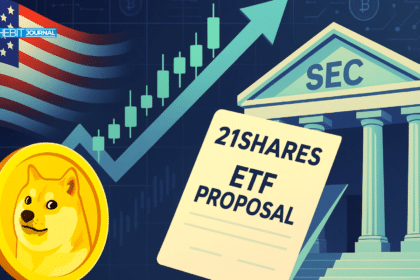In a significant development for the Arbitrum community, the Arbitrum DAO has successfully passed a proposal aimed at introducing a new staking mechanism for the ARB token. This move, which garnered strong support from the community, is set to enhance both the utility of the ARB token and the security of the network’s governance.
Strong Community Support for Staking
The proposal, which underwent a “temperature check” vote, saw over 25,000 participants casting their votes, with an overwhelming 91% in favor. This vote of confidence from the community underscores the collective desire to improve the functionality and value proposition of the ARB token.

At the heart of this proposal is the introduction of a liquid staking mechanism. ARB token holders will be able to stake and delegate their tokens, receiving a liquid staked token called stARB in return. This token will serve multiple functions, including auto-compounding of rewards, options for restaking, and compatibility with various decentralized finance (DeFi) applications. The goal is to incentivize greater participation in the network’s governance processes and, in turn, bolster the overall security of the ecosystem.
Governance and Active Delegation
The staking system will be built on Tally’s liquid staking token framework, customized to fit Arbitrum’s specific governance structure and fee collection methods. A key aspect of the new system is the concept of “active delegates,” who will be determined based on a Karma Score. This score aggregates data from various sources, such as Snapshot voting, on-chain activity, and forum engagement.
The Karma Score will ensure that only those who actively contribute to the network’s governance are eligible for staking rewards. The Arbitrum DAO retains the flexibility to adjust the scoring criteria and set minimum requirements, allowing the system to evolve alongside the network’s needs.
This alignment of staking and governance is intended to address the ARB token’s underperformance in terms of value accrual and the declining voter turnout in the DAO. With less than 1% of ARB tokens currently active within the on-chain ecosystem, this initiative aims to encourage more robust participation, leading to more informed and representative decision-making within the DAO.
Addressing Security Concerns
Security remains a paramount concern for the Arbitrum network, particularly given the substantial value held in its treasury. With over 16 million ETH accumulated from Arbitrum One and Nova, the risk of governance attacks has become more pronounced. To mitigate these risks, the new staking system includes safeguards that will return voting power to the DAO if stARB tokens are deposited into systems that do not maintain a direct delegation relationship.

These measures ensure that the control of the network remains firmly in the hands of the Arbitrum community, reducing the risk of manipulation by external entities. The DAO will also have the authority to determine how this reclaimed voting power is redistributed, further enhancing the security of the governance process.
A Strategic Step for Arbitrum’s Future
The implementation of this staking proposal is estimated to cost $200,000 in ARB tokens, covering expenses such as smart contract development, integration with Tally.xyz, and security audits. This initiative follows a recent decision by the Arbitrum Foundation to allocate $215 million over three years to support gaming projects on the network, highlighting a broader strategy to drive growth and innovation.
As Arbitrum continues to establish itself as a leading Layer 2 solution on Ethereum, with over $2 billion in total value locked, the successful execution of this staking proposal could prove crucial in maintaining the network’s momentum. By enhancing the utility of the ARB token, encouraging greater governance participation, and addressing security concerns, Arbitrum is positioning itself for continued success in the competitive DeFi landscape.
This latest move by the Arbitrum DAO reflects a commitment to adapting and evolving in response to the needs of its community, ensuring that the network remains resilient and secure as it grows.





























